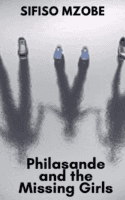Dr Jonas Dladla wakes up and feels for the stethoscope next to him. He takes off his T-shirt and digs a hole in the sand. He buries his stethoscope here on this remote beach. When he flies home later tonight he will write his resignation letter, bringing an end to a glittering medical career.
Dladla never imagined his life would turn out this way. As a trauma surgeon at Sandton Private Hospital he knows that death is a fact of life, but he never thought his wife would die at fifty. She is the one who led a healthy lifestyle, insisting on eating right and taking regular exercise. But last year they found the cancer and six months later, in spite of getting the best medical care money could buy, she passed away. Dr Dladla never thought he would be widowed at fifty-five.
It is the first festive season without his wife. Instead of going overseas as they have done for the past fifteen years, this year he decided to travel the Garden Route. He took a flight to Cape Town and travelled up the coast in a hired car. The journey has been therapeutic.
He inhales the freshness in the air and listens to the rustling fronds of the coastal strelitzia trees. He is here in this secluded beach in Port Shepstone to go through the last stage of mourning for his wife. This beach is important in his life. It was on this beach that they met.
The sign is gone now, but back then in the apartheid days this beach was for ‘Blacks Only’.
He needs to take one last dip in these waters before taking a late night flight back to Joburg. He got to the bay early in the morning, swam and napped under a tree. He is woken by children’s voices in the distance. They don’t see him behind the trees. His cellphone rings. His daughter is at the other end of the line.
“Are you OK, Dad? We are worried about you,” she says.
“I am fine. Just needed this time to myself. All is well, my child. I’ll take a late night flight. Don’t worry about picking me up at the airport. I’ll take a cab home. My battery is low, so bye.”
Dr Dladla takes one last dip in these waters where he met the love of his life. He swims away from the voices of children.
*****
Philasande spots a sparkle behind trees in the distance. It is the sun reflecting on Dr Dladla’s cellphone as he answers his daughter’s call. Philasande is not sure about what she is seeing. She turns back to Mam and the other girls. After a while, after focusing hard, she spots a man swimming far out in the ocean. He is so far he seems like a dot in the vast body of water. She gets word to Wandile while they play in the sand.
“I’ll just run, Wandile. Mam won’t catch me.”
“No, wait,” says Wandile. “A perfect window will open when Mam is going for a swim. She can’t resist the water.”
It is not long before Mam takes to the water. The girls marvel as she floats with the waves. She is a good swimmer.
“Teach us to float like you do Mam,” says Wandile.
“OK, my Marys. But one at a time.”
Mam takes one girl to deeper water. Then the second one. By the time Mam takes another girl Wandile and Philasande have seen that she has her back to the beach, looking to sea, when she teaches the girls to float.
Wandile says: “Go Phila. Call for help. Call your mother and the police. And everyone on that man’s phone.”
Philasande makes a dash to the line of trees in the distance. Mam turns. “I’m next, Mam,” says Wandile.
“No, I’m next,” says another girl.
“No, it’s my turn,” says another.
But Mam is counting the girls as they try to block her view to Philasande’s escape.
“Yoli!” Mam shouts to her assistant. “Yoli, where is the new Mary?”
Yoli sits up and looks around. She sees Philasande dash for cover behind trees.
“There!” Yoli points to the trees.
***
Tell us: Can Mam and Yoli keep control of the situation now?


